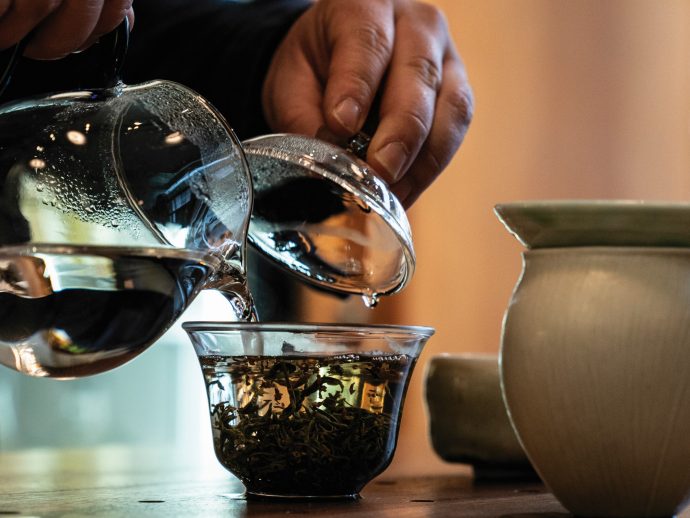Harness the power of this simple pleasure
As a new season approaches, it’s common to turn our minds toward rejuvenation—detoxifying ourselves from what’s not serving us and refocusing on what nurtures us.
Tea, both true tea—made from the tea plant Camellia sinensis, including green, white, and black teas—and certain herbal infusions, can help in the physical process of detoxification by supporting the body’s metabolic and natural detoxification processes. These teas can also work to detoxify our mental state by helping to clear away stress, anxiety, and emotional blocks that may be weighing us down.
The value of doing less
Guided by Jude Wang of Cultivate Tea, we take a deeper look at how tea helps to detoxify and refocus the mind and body to enhance overall well-being. Wang explains that, while certain teas may be particularly helpful to physically detox, sometimes it is more about giving your body the space and time to carry out the self-care that it has been designed to perform.
“Sometimes detox is about doing less,” says Wang. “These days, detoxing our mind and soul can be so much more important to think about than physical detoxing.” That’s where the ritual of tea comes in.
Wang points out that our fast-paced, modern culture can often treat tea with a transactional attitude. “We have a tendency to think of it in terms of what it can give to us: tasting notes, health benefits.”
Wang believes that tea provides the opportunity for a more nuanced experience: a chance to slow down, declutter the mind, acknowledge emotions, and nurture meaningful bonds with others. Time out to tune in.
The tea experience for mental detoxification
Sitting down with Wang to share the ritual of tea is a fluid experience that is tailored to the tea being served and the person, or people, he is sharing it with. Wang notes that it doesn’t so much matter how your tea ritual is conducted but rather the spirit in which it’s carried out.
From experiencing the look and smell of the leaves, watching them unfurl as they steep in the water, exploring the taste and mouthfeel—and how it evolves through multiple steepings—Wang values the meditation that tea provides.
The power of tea ceremony
Research shows that tea ceremonies enable participants to share common emotions, capture a sense of personal progression, improve concentration, and increase feelings of mindfulness. Further, the act of preparing and drinking tea has been found to help curb stress and boost psychological well-being.
Finding meaningful rejuvenation
Wang suggests that, if you come to tea with an open mind, its power can be transformative and its contribution to daily life invaluable. “It’s something so simple. It’s just tea leaves. But at the same time, it has so much behind it.”
By Laura Newton

